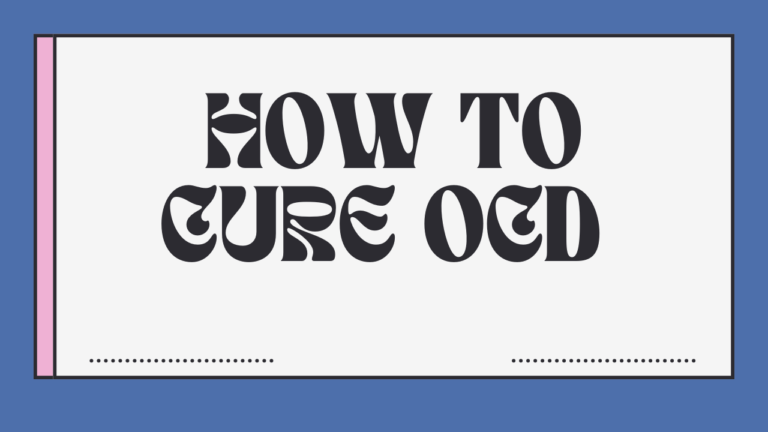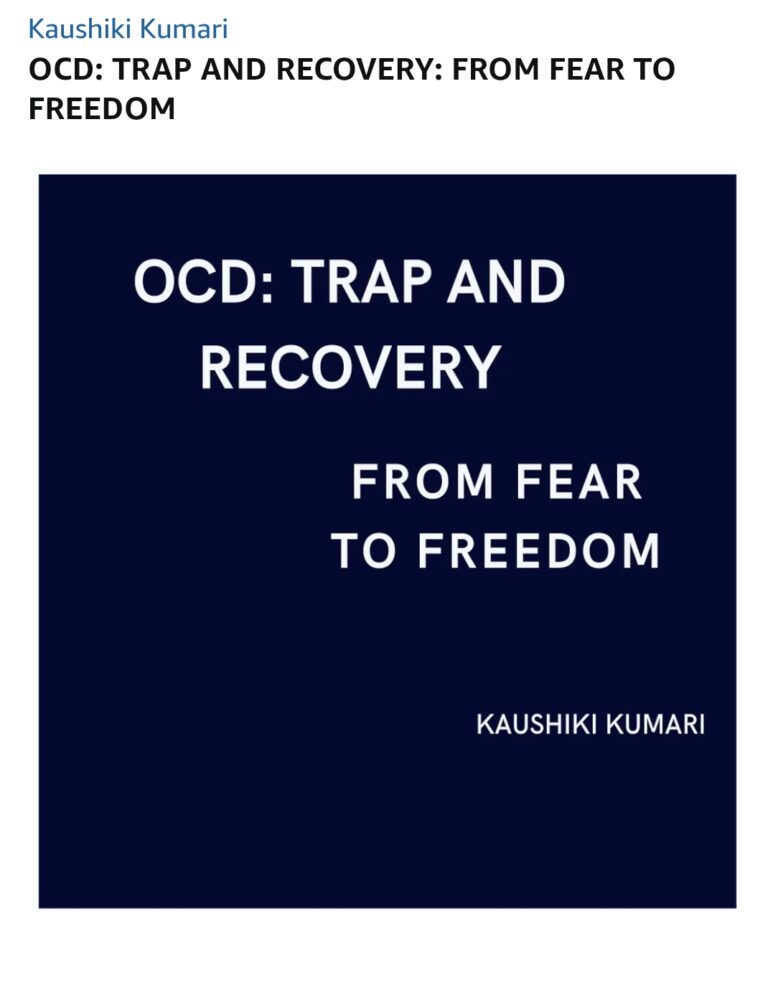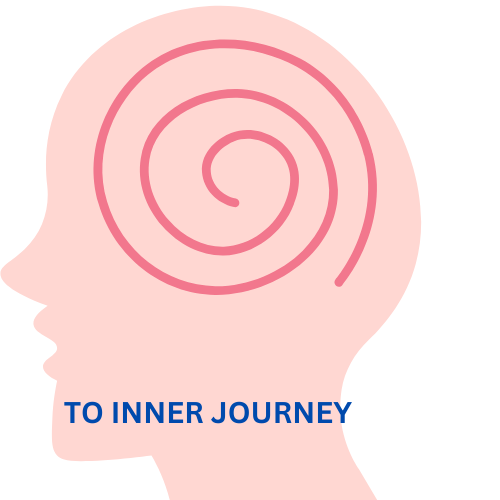
First, to help us cure OCD ,lets first understand that…..
To first cure OCD . Let’s discuss OCD. The first part is obsession, which manifests as intrusive thoughts, and the next part is compulsion, which manifests as repetitive actions. When these thoughts and actions start affecting our daily routine, we call it a disorder.
OCD begins with a thought that is often nonsensical or illogical and does not align with our desires. To understand this, we need to grasp the nature of our thoughts. Our mind is a thought-generating machine, continuously producing thoughts based on stored information, experiences, and memories. Sometimes, it generates defective thoughts that lack real substance.
The first step is to challenge the validity of these thoughts and trace their origins. Most of them will prove to be illogical.
Now let’s talk about the second part of OCD: compulsion. When we accept these thoughts as real without questioning their logical basis, anxiety begins to build up. To relieve this anxiety, we engage in certain actions, such as performing rituals or seeking escapism. This is where we go wrong, as these actions strengthen the OCD pattern with each repetition.
Having understood the “O” part (the thought aspect) of OCD, the second step is to observe the thought from a distance. Tell yourself that it is just a thought and bear the anxiety that accompanies it without acting on it. Gradually, by practicing these steps, you will notice that your OCD pattern weakens and will eventually fade away. Hence practicing this will help us cure OCD permanently.

THERE ARE CERTAIN OTHER THERAPIES, WHICH CAN HELP US CURE OCD:
- Cognitive-Behavioral Therapy (CBT): This is very similar to as explained above. Exposure and Response Prevention (ERP): This is the gold standard for OCD treatment. It involves gradually exposing the person to situations that trigger their obsessive thoughts while preventing the compulsive response. Over time, this reduces the power of the obsession. Cognitive Therapy: Helps individuals identify and challenge distorted thoughts and beliefs contributing to their OCD
IF YOUR ANXIETY AND OCD IS SEVERE,YOU CAN GO FOR MEDICINE AS AN SUPPORT TO CURE OCD:
Selective Serotonin Reuptake Inhibitors (SSRIs): These are antidepressants commonly prescribed to manage OCD symptoms, such as fluoxetine (Prozac), sertraline (Zoloft), and fluvoxamine (Luvox). They help by increasing serotonin levels in the brain, which can improve mood and reduce obsessive thoughts. Clomipramine: An older antidepressant that can also be effective but has more side effects than SSRIs.
YOU CAN ALSO INCORPORATE LIFESTYLE CHANGES AND MINDFULLNESS TECHNIQUES:
Healthy Habits: Regular exercise, sufficient sleep, and a balanced diet can improve mental health. Stress Management: Reducing stress through hobbies, spending time with loved ones, and establishing routines can make OCD easier to manage.
Practicing mindfulness, meditation, and relaxation exercises (like deep breathing) can help reduce anxiety related to obsessive thoughts and compulsions.
CONCLUSION
In conclusion, understanding and managing OCD requires both awareness of its mechanisms and a commitment to implementing therapeutic practices. By recognizing that OCD is fueled by intrusive, illogical thoughts and the compulsions that follow, individuals can begin to break the cycle of obsession and compulsion. Techniques like Cognitive-Behavioral Therapy (CBT), especially Exposure and Response Prevention (ERP), provide a structured approach to confronting these thoughts and reducing the urge to act on them. For those with more severe symptoms, medications such as SSRIs can offer valuable support when combined with therapy.
In addition to formal treatments, lifestyle changes and mindfulness techniques play a vital role in managing OCD. Regular exercise, quality sleep, and relaxation practices can strengthen resilience against anxiety, allowing individuals to experience a greater sense of control over their thoughts and behaviors. With dedication to these strategies and ongoing support, it is possible to weaken OCD patterns and reclaim a fulfilling life.
